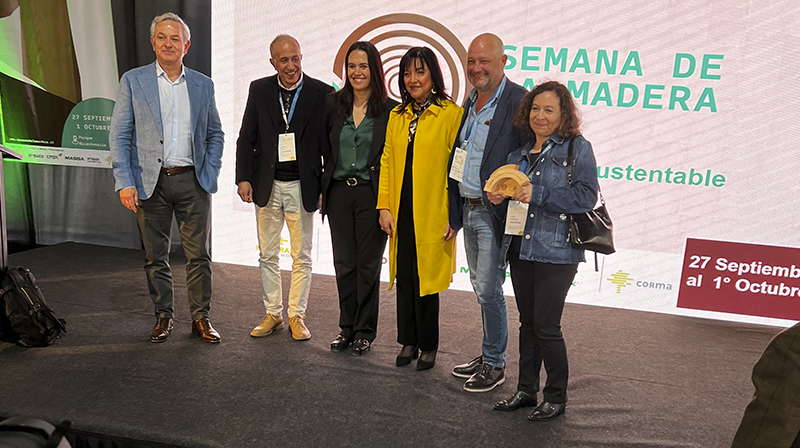Developed by UDT and licensed by OTL to the company Aislacor SpA, it won first place in the Innovation and Start-Ups category awarded by CORMA’s Madera21.
This solution, led by UDT researcher Dr. Cecilia Fuentealba, will replace traditional thermal insulation products that are not very environmentally friendly, becoming a concrete contribution to sustainability for construction materials.
Innovation and differentiation
Currently, the use of insulation for housing is 99% concentrated in materials from fossil sources such as expanded polystyrene, mineral wool and glass wool. What do these insulators have in common? They all have a high carbon footprint, and productive activities that do not incorporate a focus on sustainability are destroying our children’s planet.
Considering the above, and that our company within its production process generates a by-product that is shredded eucalyptus bark, which today is sold to be burned in boilers that, despite complying with all international standards, we are still indirectly generating a CO2 emission of about 42 tons/month. The shredded bark, which is the raw material for the project we are developing, exists in sufficient quantity not only in our company, but in all those that work with this species, so the lack of raw material is not a risk for the project.
As a fact, construction in Chile has grown in the last 10 years at an annual rate of 4%, however, the current housing deficit is approximately 600 thousand houses. Today the consumption of insulation ONLY in social housing is of the order of 5.7 million m2 per year, without considering the other constructions that use this material, and our project will initially produce 0.8 million m2/year, that is, there is a lot of room to grow.
This is why, together with the UdeC’s UDT (Technological Development Unit), we started a project 5 years ago to develop a product that gives a more noble use of this by-product, and after several iterations we reached the development of a natural insulating board, certified that will allow us on the one hand to capture the CO2 contained in the material, and on the other to replace part of the insulators used today that pollute so much.
Our product is already patented by the UdeC and licensed to AISLACOR for 20 years. The product has already passed the certification tests according to MINVU requirements, which are thermal conductivity, acoustic and fire resistance, required to be used as part of a construction solution, whose results were equal or better compared to those used today.

